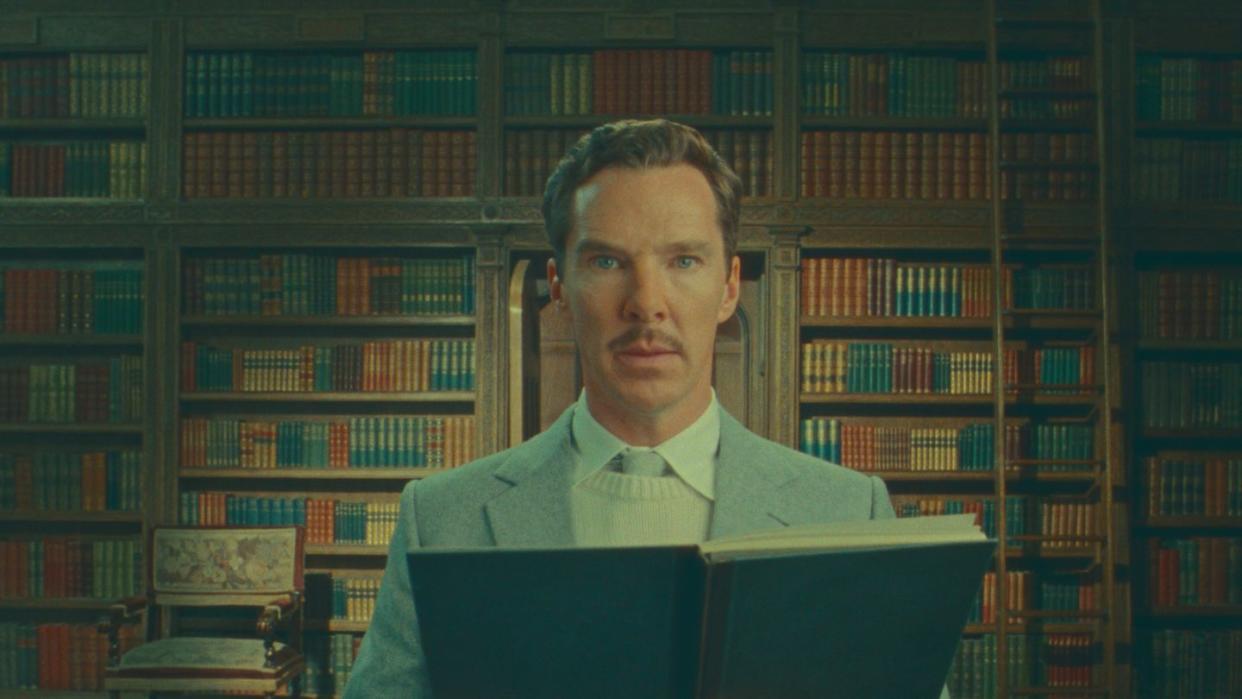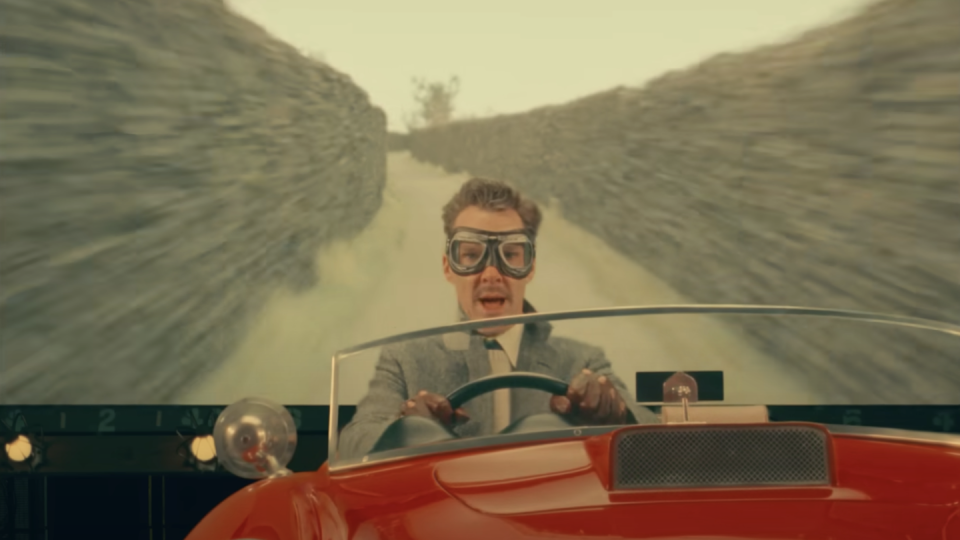'The Wonderful Story of Henry Sugar' Is a Wonderful Surprise

- Oops!Something went wrong.Please try again later.
Usually, when a long-gestating, auteur-driven passion project finally sees the light of day, it takes the dense, imposing form of a magnum-opus, and fans and the press treat its release as an Important Event. Wes Anderson’s new Roald Dahl adaptation, The Wonderful Story of Henry Sugar, veers the other way. Anderson wanted to bring the story to the screen for 15 years—dating back to his last Dahl adaptation, 2009’s Fantastic Mr. Fox—but by Anderson's standards, it is slight (with a small cast and 40-minute runtime) and has emerged with little prerelease hype.
If Henry Sugar is a relatively minor work in Anderson’s oeuvre, though, it is by no means a second-rate one. Anderson’s holdup was not knowing how to tackle the material, and the device he ultimately came up with works marvelously. Henry Sugar is a nesting-Dahl that finds the author himself (played by Ralph Fiennes) and characters within his story narrating with prose lifted from the book. One of Anderson’s great gifts as a filmmaker is his ability to conjure the feelings and spirit of childhood. Watching Henry Sugar, perhaps more so than any other film I’ve seen, gives the sensation of being read a great picture-book—albeit one that is fully alive, cinematic, and age-agnostic.
At the center of the story is Henry Sugar (Benedict Cumberbatch), a vain, wealthy man who—while visiting a friend’s estate—chances upon an obscure book titled, “A REPORT ON IMDAD KHAN: The Man Who Sees Without His Eyes.” It was written in December 1935 by Dr. Z.Z. Chatterjee (played by Dev Patel). After introducing the book (through Sugar through Dahl), Anderson peels out a layer to Chatterjee in the Calcutta hospital where he works, telling the story of an encounter with Imdad Khan (Ben Kingsley). He's a man who, through meditation, learned to see clearly with his eyes completely blinded. The book inspires Sugar to learn to meditate well enough to be able to see through a playing card—the intention is to win massive gambling sums. But when he eventually succeeds, he feels only apathy towards his winnings and begins to use his new talent for altruistic purposes.
Henry Sugar is a story about obsession, and the inevitable disappointment of obtaining mastery—a subject Anderson can no doubt relate to. (In a recent interview, the director said that the feeling he gets when he nails a tricky long shot is, “Next!”). For what's ostensibly a side project, Henry Sugar sacrifices none of the director’s trademark stylistic meticulousness and narrative intricacy. But it’s not showy about its virtuosity. Anderson cycles through the many layers of his construction seamlessly, with each narrator matching the other’s fleet, rhythmic patter. With the exception of Fiennes, Henry Sugar finds Anderson turning to a troupe of mostly new collaborators, a testament to the director’s ease at integrating new players into his ongoing project.

Oh, did I mention that this isn’t the only new Dahl adaptation from Anderson that landed on Netflix this week? Once Anderson found his way into Henry Sugar, he went ahead and applied the same technique to three other Dahl short stories: The Swan, The Rat Catcher, and Poison. The other films are smaller—about 17 minutes each—and feature appearances from the same troupe of actors as Henry Sugar (plus Rupert Friend).
Since Wednesday, Netflix has been rolling these short films out one per day. Poison, coming tomorrow, us the final release. They arrive at a time of streaming cynicism—when the quality of the big streamers’ output has largely deteriorated and the disruption these companies have brought upon Hollywood seems to ultimately have been a negative one. Without a doubt, count me among the streaming skeptics. But give credit where it’s due: In a perfect world, this is the role the streamers would serve—allowing established auteurs and exciting new voices the space to create work that doesn’t conform to conventional formats. But yeah, OK. Forgive me, I may still be a few layers deep in a fantasy world.
You Might Also Like

